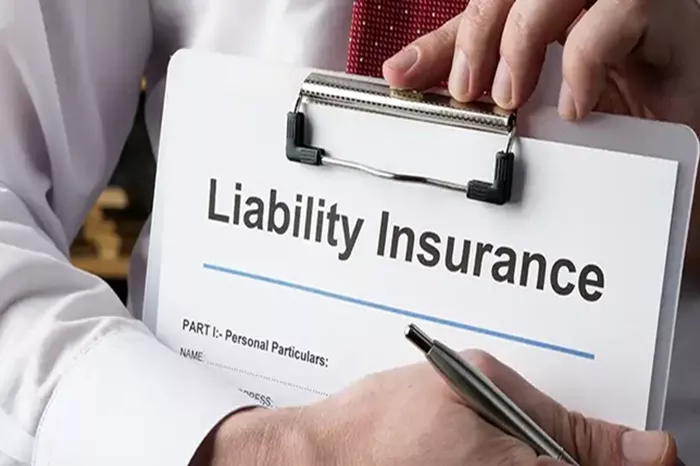When running a business, protecting yourself from potential liabilities is crucial. Professional liability insurance, often known as errors and omissions insurance, offers that protection. However, as a business owner, you may wonder about the tax implications of this necessary expense. Specifically, “Is professional liability insurance tax deductible?” This article will explore the intricacies of professional liability insurance, its importance, and whether it qualifies as a tax-deductible expense.
Understanding Professional Liability Insurance
Professional liability insurance is a type of coverage designed to protect professionals against claims of negligence or mistakes made in the course of their professional duties. Unlike general liability insurance, which covers physical injuries and property damage, professional liability insurance focuses on errors, omissions, or negligent acts that cause financial harm to a client or third party.
Importance of Professional Liability Insurance
Every profession comes with its own set of risks. For example, a doctor could face a malpractice suit, a lawyer might be accused of providing poor legal advice, and an architect could be blamed for a flawed building design. In such cases, professional liability insurance provides a financial safety net, covering legal defense costs and any resulting settlements or judgments.
Having this insurance is not just a prudent business decision; it is often a requirement. Many professional licensing boards, clients, and industry associations mandate that professionals carry liability insurance as a condition of doing business.
Tax Deductibility of Professional Liability Insurance
The tax deductibility of professional liability insurance hinges on whether the expense is considered both ordinary and necessary for conducting business. According to the Internal Revenue Service (IRS), an ordinary expense is one that is common and accepted in your trade or business, while a necessary expense is one that is helpful and appropriate for your business.
Ordinary and Necessary Business Expenses
Professional liability insurance typically qualifies as both an ordinary and necessary expense for professionals in various fields. Therefore, premiums paid for this type of insurance are generally deductible as a business expense.
IRS Guidelines
The IRS provides clear guidelines on what constitutes a deductible business expense. Under IRS Publication 535, Business Expenses, professional liability insurance premiums are categorized as deductible insurance expenses. This publication states that you can deduct the cost of insurance that is ordinary and necessary and that is for your trade, business, or profession.
Documenting Your Deduction
To ensure that your professional liability insurance premium qualifies for a tax deduction, it is important to keep meticulous records. Documentation should include the insurance policy, invoices, and proof of payment. This paperwork will be crucial if the IRS questions the legitimacy of your deduction.
Deduction Limitations and Considerations
While professional liability insurance is generally deductible, there are limitations and considerations to keep in mind:
Personal Use: If part of your professional liability insurance covers personal activities, only the business-related portion is deductible.
Policy Period: If you pay premiums for a policy that extends beyond the current tax year, you may need to allocate the deduction over the applicable tax years.
Alternative Minimum Tax (AMT): For taxpayers subject to the AMT, some deductions may be limited. It is advisable to consult with a tax professional to understand how the AMT may impact your deductions.
Case Studies: Professional Liability Insurance Deductions
Case Study 1: Legal Practice
A solo attorney purchases professional liability insurance to protect against potential malpractice claims. The annual premium is $3,000. Since this insurance is a requirement of practicing law and is both ordinary and necessary, the attorney deducts the full $3,000 as a business expense on their tax return.
Case Study 2: Medical Practitioner
A small medical practice pays $10,000 annually for malpractice insurance. This premium is essential for the practice to operate and is thus deductible. The practice maintains thorough records of the insurance policy and payments, ensuring compliance with IRS requirements.
Case Study 3: Consulting Firm
A consulting firm specializing in IT services carries professional liability insurance with an annual premium of $5,000. The firm deducts this expense as it is necessary to protect against claims of negligence and errors in their work. The firm’s accountant allocates the premium over the policy period when it spans multiple tax years.
See Also: Is Professional Liability Same as E&O?
Tax Benefits Beyond Deductibility
Lowering Taxable Income
Deducting professional liability insurance premiums reduces your business’s taxable income. This reduction can lead to significant tax savings, especially for businesses with high premiums.
Enhancing Cash Flow
By deducting insurance premiums, businesses can improve their cash flow. The tax savings realized from the deduction can be reinvested into the business, used to cover other expenses, or saved for future needs.
Building a Comprehensive Tax Strategy
Including professional liability insurance premiums as part of your overall tax strategy can enhance your financial planning. It allows for more accurate budgeting and forecasting, ensuring that all potential deductions are accounted for.
Common Misconceptions About Professional Liability Insurance Deductions
Misconception 1: Only Large Businesses Can Deduct Premiums
Small businesses and sole proprietors can also deduct professional liability insurance premiums, provided they meet the IRS criteria of being ordinary and necessary expenses.
Misconception 2: Deducting Premiums Increases Audit Risk
While all deductions should be accurately documented, deducting professional liability insurance premiums does not inherently increase your risk of an audit. As long as the deduction is legitimate and supported by proper documentation, it is a valid business expense.
Misconception 3: Deducting Premiums Is Complicated
The process of deducting professional liability insurance premiums is straightforward. Maintaining proper records and following IRS guidelines simplifies the process.
Professional Liability Insurance for Different Professions
Healthcare Professionals
For doctors, nurses, and other healthcare providers, malpractice insurance is a common form of professional liability insurance. The premiums for this insurance are often substantial but are fully deductible as a necessary business expense.
Legal Professionals
Attorneys require professional liability insurance to protect against malpractice claims. These premiums are deductible, as they are ordinary and necessary for legal practice.
Financial Advisors
Financial advisors and accountants carry professional liability insurance to cover potential claims of errors and omissions in their financial advice. The cost of these premiums is deductible.
Architects and Engineers
Professional liability insurance for architects and engineers protects against claims related to design flaws or construction errors. These premiums are deductible as ordinary and necessary business expenses.
IT Consultants
IT consultants use professional liability insurance to cover claims of negligence or errors in their services. The premiums are considered deductible expenses.
Maximizing Your Deductions
Consult a Tax Professional
Working with a tax professional ensures that you maximize your deductions while complying with IRS regulations. A tax expert can help you navigate the complexities of tax law and identify all potential deductions.
Keep Accurate Records
Maintaining detailed records of your professional liability insurance policies, premiums, and payments is crucial. Accurate documentation supports your deductions and is essential if the IRS audits your business.
Stay Informed on Tax Law Changes
Tax laws are subject to change, and staying informed about these changes is important. Regularly reviewing IRS publications and consulting with a tax professional helps ensure that you remain compliant and maximize your deductions.
Conclusion
Professional liability insurance is an essential safeguard for many professionals, offering protection against claims of negligence and errors. The premiums for this insurance are generally deductible as an ordinary and necessary business expense. By understanding the tax implications of professional liability insurance and maintaining accurate records, businesses can effectively manage their tax liabilities and enhance their financial health. Consulting with a tax professional further ensures compliance with IRS regulations and maximizes potential deductions, ultimately benefiting the business’s bottom line.






















